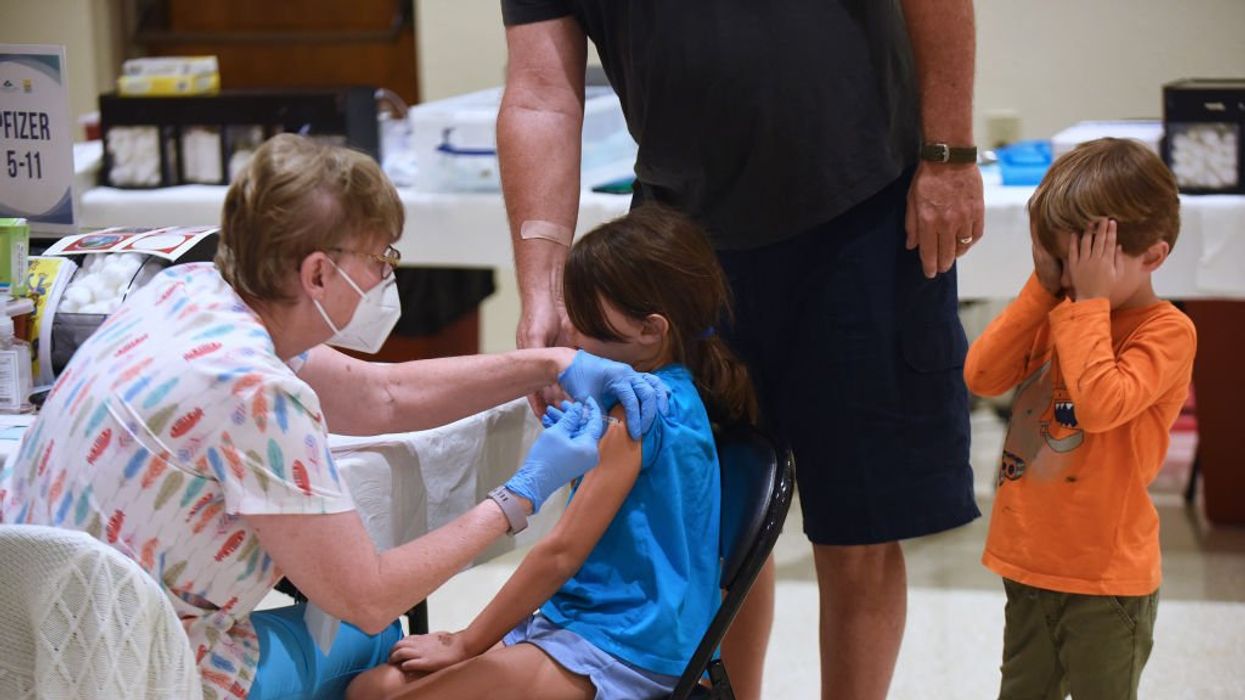
Photo by Paul Hennessy/SOPA Images/LightRocket via Getty Images

Those skeptical of the assertion that COVID-19 vaccines were altogether safe and effective — a claim long advanced by once-trusted government agencies, pharmaceutical companies, and the media amidst a historic censorship campaign targeting dissenters and critics — appear to have had their doubts once again validated.
A damning new peer-reviewed multinational study examining data from nearly 100 million people has not only affirmed the well-documented link between the COVID-19 vaccines and increased risk of heart conditions but has also highlighted troubling links between the AstraZeneca, Moderna, and Pfizer vaccines and medical conditions such as Guillain-Barré syndrome, brain and spinal cord inflammation, Bell's palsy, and convulsions.
The study was conducted by the Global COVID Vaccine Safety Project — a Global Vaccine Data Network initiative supported by both the Centers for Disease Control and Prevention and the Department of Health and Human Services — and published last week in the esteemed journal Vaccine, the official journal of the Japanese Society for Vaccinology.
Lead author Kristýna Faksová of the Department of Epidemiology Research at the Danish State's Serum Institute was joined by researchers from various other countries including Argentina, Australia, Canada, Finland, New Zealand, and Scotland in assessing whether there was a greater risk of 13 neurological, blood, and heart-related medical conditions occurring following the receipt of a COVID-19 vaccine.
According to the observed versus expected rates study, which included data on 99 million people vaccinated against SARS-CoV-2 across eight countries, "the risk up to 42 days after vaccination was generally similar to the background risk for the majority of outcomes; however, a few potential safety signals were identified."
"Bell's palsy had an increased OE ratio after a first dose of [Pfizer's] BNT162b2 and [Moderna's] mRNA-1273," said the study. "There were also increased OE ratios for febrile seizures following a first and second dose of mRNA-1273 ... and for generalized seizures following first mRNA-1273 dose and fourth BNT162b2 dose."
The researchers observed a trend of Guillain-Barré syndrome and cerebral venous sinus thrombosis — a type of blood clot in the brain — cases after viral vector vaccines such as the Oxford-AstraZeneca COVID-19 vaccine, which Canada and European nations ditched in spring 2021 over reports of dangerous blood clots.
The researchers specifically found a "statistically significant increase in GBS cases within 42 days after a first ChAdOx1 dose." Whereas they expected to find 76 GBS "events," they found well over twice as many.
The University of Auckland, which hosts the Global Vaccine Data Network, noted that the researchers found possible "safety signals for transverse myelitis (inflammation of part of the spinal cord) after viral vector vaccines and acute disseminated encephalomyelitis (inflammation and swelling in the brain and spinal cord) after viral vector and mRNA vaccines."
However, the paper cautioned that "although some case reports have suggested a possible association between COVID-19 vaccination and ADEM, there was no consistent pattern in terms of vaccine or timing following vaccination, and larger epidemiological studies have not confirmed any potential association."
The study did however confirm previously established safety signals for myocarditis and pericarditis following mRNA vaccination, highlighting "significantly higher risks of myocarditis following the first, second and third doses of BNT162b2 and mRNA-1273 as well as pericarditis after the first and fourth dose of mRNA-1273, and third dose of ChAdOx1, in the 0–42 days risk period."
According to the study, "Potential underreporting across countries may have led to an underestimation of the significance of potential safety signals" for viral vector and mRNA vaccines alike.
"The size of the population in this study increased the possibility of identifying rare potential vaccine safety signals," Faksová said in a statement. "Single sites or regions are unlikely to have a large enough population to detect very rare signals."
The researchers claimed that the "safety signals identified in this study should be evaluated in the context of their rarity, severity, and clinical relevance."
Additionally, they noted the "overall risk–benefit evaluations of vaccination should take the risk associated with infection into account, as multiple studies demonstrated higher risk of developing the events under study, such as GBS, myocarditis, or ADEM, following SARS-CoV-2 infection than vaccination."
Blaze News reported earlier this month that a peer-reviewed study published Jan. 24 in the Springer Nature Group journal Cureus suggested the COVID-19 vaccines were a rushed product with an "unacceptable harm-to-reward ratio."
The study noted that the kinds of serious adverse events that would be factored into a risk-benefit comparison "have often been wrongly ascribed to COVID-19 rather than to the COVID-19 mRNA vaccinations."
"Misattributions of SAEs to COVID-19 often may be due to the amplification of adverse effects when mRNA injections are followed by SARS-CoV-2 subvariant infection," said the study. "Injuries from the mRNA products overlap with both [post-acute COVID-19 syndrome] and severe acute COVID-19 illness, often obscuring the vaccines' etiologic contributions."
- YouTubewww.youtube.com
Like Blaze News? Bypass the censors, sign up for our newsletters, and get stories like this direct to your inbox. Sign up here!